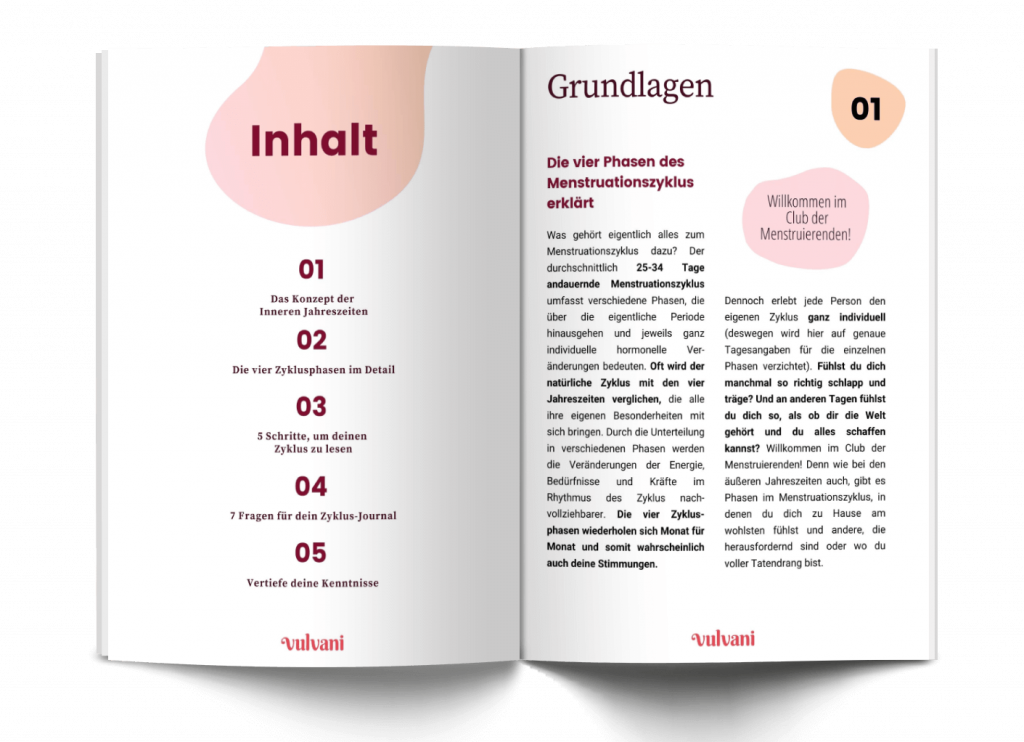
Discovering your menstruation as a spiritual practice
Yasmine understands her menstruation as a spiritual practice and shares in this interview how she is connecting more with her own body through cycle awareness.
There are, according to a survey by the International Women’s Health Coalition and the app Clue, over 5,000 ways to say you’re on your period. They run the gamut from English’s “Auntie Flow,” to French’s “the English have landed,” or even Danish’s “the communists are in the funhouse.” These 5,000 different euphemisms can come in handy: the survey also found 78 % of menstruators only talk about it through euphemisms. But why is it so awkward to talk about your period?
That same survey examined how the stigma can vary from place to place – and also on who you’re talking to. 95 % of Algerians feel comfortable discussing their period with a female family member, while 86 % of Russians would hate to do so with a male classmate. These are two very different cultures and situations, but differences in the same topic are striking as well. 93 % of Pakistanis wouldn’t talk about it to a male family member; in Sweden, that number dropped to 55 %. Taboos will vary depending on the culture – India is known for a very strong one – but many cultures still carry it. And this can have tangibly harmful effects on menstruators, especially when they are young.
There are a number of reasons that silence about menstruation, especially menstrual health, can be damaging. One in four children in the UK don’t learn about their period until they have reached puberty. The International Women’s Health Coalition reports that in some developing countries, period discussion is so rare that young people are often surprised when it arrives. Periods can be terrifying if you know nothing about them, so the chance to talk about your period is vital. Furthermore, not only can a lack of education lead to poor menstrual hygiene and infection, but also reinforce myths that demean and shame menstruators. (Hint: walking past a plant when you’re menstruating will not kill it.)
The effects of this stigma and lack of attention are dangerous. Only 12 % of Indian girls have access to period products, which frequently causes them to drop out of school. Across the world, World Bank estimates that pupils miss four days every four weeks due to menstruation. UNESCO ran several small studies on it, which had varied results. A 2010 study of 198 students in Nepal found menstruation’s effect on attendance was minimal. Meanwhile a 2012 study of 120 students in Ghana found supplying period products and education significantly improved attendance over five months. Overall, however, menstruating students were found less likely to contribute, stand up or write on the blackboard, for fear of accidents. Being unable to talk about your period can have detrimental effects on health, self-esteem, and education and future prospects.

So how could we change this? There are a number of ways to try to normalise discussion of periods in everyday life. I listed a few below which may help, though they are unlikely to work for everybody.
Talking to other menstruators may be easier: they already have the experience and understand what it means. But it’s just as important to talk to people who don’t menstruate as it is to those who do. In order to decrease the stigma, educating everyone is important.
Proper language is vital. Euphemisms serve to alleviate the speaker’s discomfort, and thus perpetuate the idea a period is dirty and shouldn’t be spoken of. Call your period what it is; don’t call it a “crimson wave.” Not only does it fight the implication that periods should be hidden, but it’s also for clarity’s sake. If you’re educating a young person or someone who doesn’t menstruate, euphemisms risk confusing them on what you’re actually talking about.
Talking about a period once then never again still sends the message that it shouldn’t be spoken of. Bringing it up often enough that it isn’t avoided, but still treated in conversations as something totally normal, is key. The more it is used in conversations as a perfectly casual topic, the more it begins to be viewed as one.
Periods are a biological function. That means that no two people will experience them the same! Some have a very difficult time with it, while others will find it easier, and some people may not menstruate at all. Not all menstruators are women, not all women menstruate, and not all menstruation is the same. In order to encourage discussion, it’s important to embrace differences, rather than try to think of all periods as a single experience.
Finally, the important one is perhaps the hardest one: being confident and unashamed. The more you act awkward for bringing it up, the more awkward a topic it will be. And if other people see you’re unapologetic in talking about your period, they may feel inspired to talk more about it as well! Feeling ashamed for a basic bodily function serves no one. If you build confidence in yourself and stop needing to act like it’s a secret, it may make everything that much easier.
These tips are supposed to be just that: tips. Depending on the situation you’re in, and how people around you might react, they may not work for you. As the fourth tip highlights: we all have different experiences, and expecting something to work for everyone is unrealistic.
The situation in most countries is still far from ideal, but there are plenty of movements driving change. There is now an international Menstrual Hygiene Day. Openness in the media is also on the rise, like Hello Flo’s 2013 ad and CBBC’s 2021 Newsround special. WaterAid works with communities to encourage conversations about periods, improve facilities, and even made the short film “Peaky Bleeders”. Period art is increasingly common. A period emoji🩸has even been added to keyboards worldwide, to make it easier to talk about.
So, hopefully in the future, the stigma won’t be nearly as powerful, or non-existent entirely. But in the meantime, it may be possible to improve openness about it in your daily life, through a simple conversation or two. Talk about your period! Even if it’s only with someone you trust, it will make such a difference.
Who do you talk to about your period and who do you hesitate to talk to about it? Write it in the comments!



Yasmine understands her menstruation as a spiritual practice and shares in this interview how she is connecting more with her own body through cycle awareness.

What options are there for male birth control? Ailsa delivers an overview of what is available now, and what may come in the future.

Sustainable underwear? The founders of TUKEA talk about fair labour conditions, body diversity and body literacy.
…and empower countless women to make empowered choices about their bodies!

